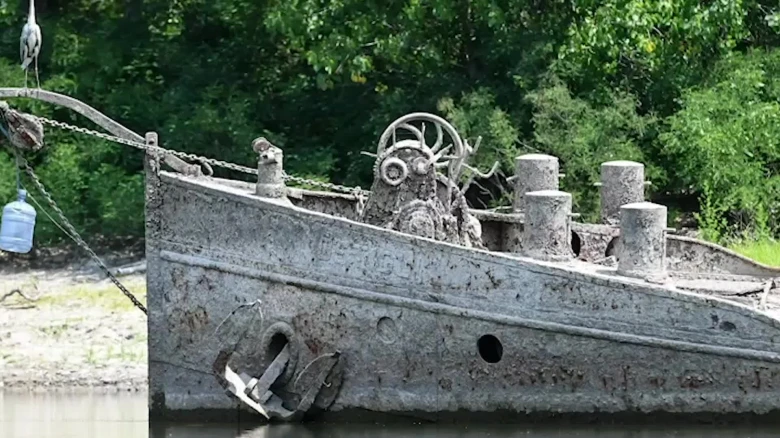Regional

Digital Desk: Water
levels in rivers and lakes around Europe have dropped to levels few people can
recall due to weeks of sweltering drought, revealing long-hidden riches as well
as some unwelcome dangers.
Archaeologists have
been thrilled by the discovery of a prehistoric stone circle known as the
"Spanish Stonehenge" that is often covered by the waters of a dam in
Spain, which is experiencing its worst drought in decades.
The stone circle, officially
known as the Dolmen of Guadalperal, is today completely exposed in a corner of
the Valdecanas reservoir in the central province of Caceres, where officials
claim the water level has fallen to 28% of its maximum level.
It was discovered by
German archaeologist Hugo Obermaier in 1926, but the area was flooded in 1963
in a rural development project under Francisco Franco's dictatorship. Since
then it has only become fully visible four times.
It was discovered by
German archaeologist Hugo Obermaier in 1926, but the area was flooded in 1963
in a rural development project under Francisco Franco's dictatorship. Since
then it has only become fully visible four times.
Some people view their
reappearance as a warning and a reminder of the struggles people endured during
previous droughts because they bear dates and people's initials. Stones in
Worms, south of Frankfurt, and Rheindorf, near Leverkusen, had dates
discernible on them, including 1947, 1959, 2003, and 2018.
The drought has caused
another of Europe's great rivers, the Danube, to drop to one of its lowest
levels in nearly a century, exposing the wrecks of more than 20 German warships
that were sunk during World War Two close to Serbia's river port city of
Prahovo.
The ships, which still
impede river movement during low water levels, were among hundreds that Nazi
Germany's Black Sea fleet scuttled along the Danube in 1944 as they withdrew
from oncoming Soviet forces.
A 450 kg (1,000 lb)
World War Two bomb that had been sunk was found in the low-running waters of
Italy's longest river in late July, prompting the country to declare an
emergency in the territories surrounding the River Po.
Approximately 3,000 residents of the northern village of
Borgo Virgilio, close to Mantua, were evacuated earlier this month as military
experts defused and carried out a controlled explosion of the U.S.-made weapon.
Leave A Comment